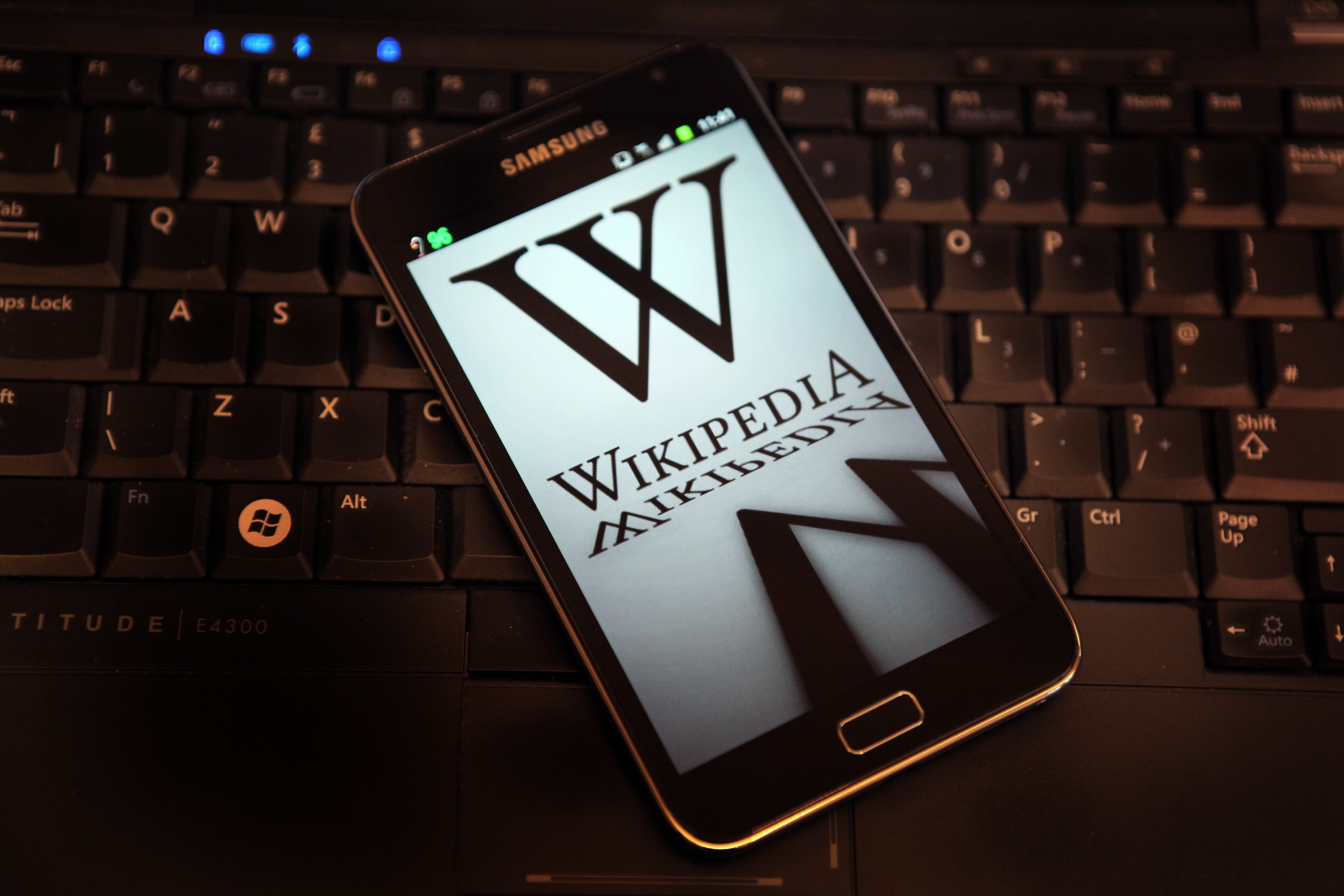Wikipedia senior editors impersonated in scam which tricked hundreds into paying for content to go online
Exclusive: Wikipedia has blocked almost 400 editor accounts for what it describes as 'black hat' editing

A number of senior editors on Wikipedia have been impersonated by imposters in a scam used to trick hundreds of people into paying for content to go online, according to the organisation which runs the website.
And a small group of trusted editors is continuing an investigation into the fraud, said a spokesperson for the Wikimedia Foundation, the non-profit organisation behind the online encyclopedia.
Investigators have already spent some 800 hours looking into the scale of the problem since the probe started seven weeks ago.
This comes after The Independent revealed last week that British companies are among those who have been targeted by a coordinated group of fraudsters.
As part of a purge prompted by the discovery of the deception, dubbed “Orangemoody” after one of the fake “sock puppet” accounts,
Wikipedia has blocked almost 400 editor accounts for what it describes as “black hat” editing. And around 250 pages have been deleted since the problem became apparent earlier this year.
More than 200 individuals and businesses have fallen victim to the fraud, in which hundreds of pounds at a time have been demanded to secure or keep a place on the website.
A team of more than 20 people is trying to get to the bottom of what has happened. “Most of these volunteers have full-time day jobs and were volunteering their time on nights and weekends,” commented a Wikimedia Foundation spokesperson.
Wikipedia calls its more senior editors ‘administrators’ – individuals whose powers include being able to prevent others from editing content on the site, and delete pages.
“We know of at least six different administrators being impersonated with the same name being used against different victims multiple times. Obviously we think that it's likely we'll find more as we talk to more victims,” commented the spokesperson.
“The Wikipedia editors who led this investigation scrutinized the activity of each blocked user account, and have not found any evidence linking these accounts to trusted, active editors on Wikipedia,” they added.
The scandal is the latest in a series of controversies involving the website in the past four years. An investigation by The Independent in 2011 uncovered the activities of a PR firm which ‘managed’ content by adding flattering entries on behalf of clients, or getting negative information removed. And two years later the website was forced to block around 250 accounts after it emerged that they had been set up to create paid-for content on the website without disclosing who they were working for.
Anybody approached by someone demanding money to create or change content on Wikipedia should contact the website, according to the Wikimedia Foundation.
“Ultimately, decisions about content on Wikipedia are made by the community of volunteer editors - they edit and maintain Wikipedia for free, so everyone can access free, reliable knowledge,” said a spokesperson. “If someone is telling you the only way to change or create your article is to pay them money, there’s something wrong. If this is the case, you can alert trusted Wikipedia editors at info-en@wikimedia.org,” they added.
But more needs to be done to protect people from suffering at the hands of hoaxers, according to British victims of the fraud.
One of those who have lost money, Dan Thompson, general manager of holiday firm Quality Villas, in Berkhamsted, Hertfordshire, commented: “I haven’t heard from Wikipedia but also didn’t expect to. I would suspect any institution staffed essentially by volunteers probably doesn’t have a client relations department, nor possibly a system to control potential fraudsters, so it would always have a limited response.”
He added: “The only true way to safeguard against this happening again is to never have any paid editing services within it and to publicise this fact consistently throughout the site.”
